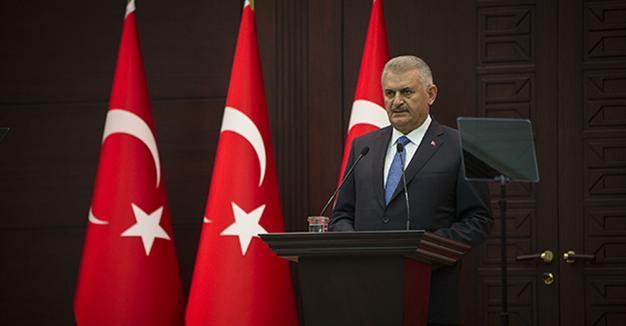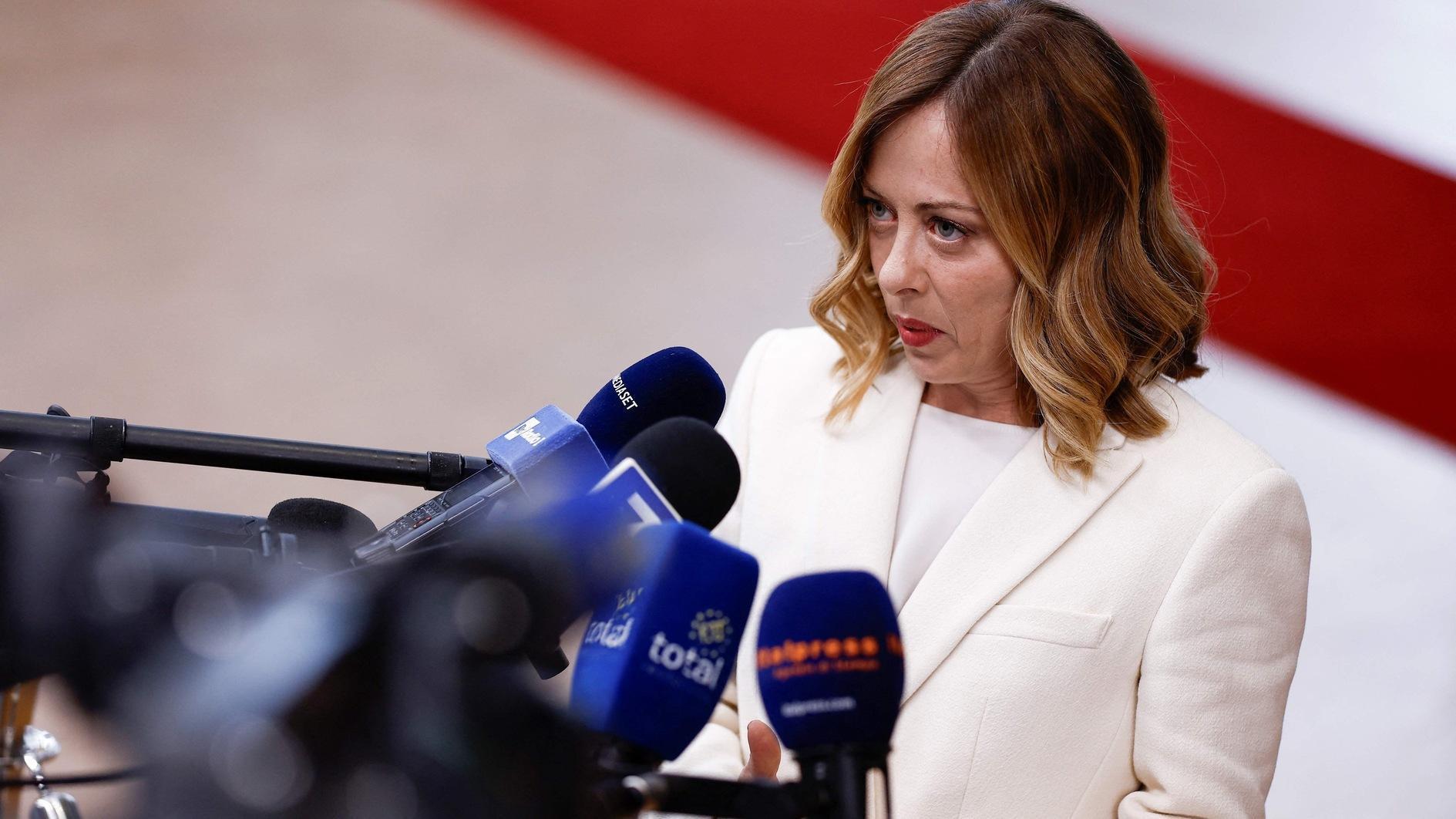‘New page’ must be opened for Syria: Turkish PM Yıldırım
ANKARA

AA photo
It is of vital importance that a “new page” is opened in Syria with a model that includes Turkey, Iran, Russia, the U.S, Gulf countries, and Saudi Arabia, Turkish Prime Minister Binali Yıldırım said on Aug. 22.“It is of vital importance that a new page in Syria is opened without losing any time with a model, in which Turkey as a neighboring country, Iran as a related party, Russia, the United States, even some Gulf countries and Saudi Arabia will play a role,” said Yıldırım on Aug. 22, speaking to the press after a cabinet meeting.
He said Turkey’s stance was “very clear - not allowing Syria to be divided, maintaining its territorial integrity and not allowing any formation that will bring advantages to any particular group.”
“Syria’s territorial integrity must be protected and an inclusive government ... where all groups are represented must be formed, so that all the animosity is removed,” Yıldırım added.
The comments were the latest signal from Ankara it is now prepared to work actively with world powers that have so far shared radically different viewpoints on the Syria conflict.
Russia and Iran are the major backers of Syrian President Bashar al-Assad, whose ouster Ankara has always said is essential for ending the over five-year civil war.
Yıldırım had on Aug. 20 recognized, for the first time, that al-Assad was “one of the actors” in Syria and could remain temporarily in a transition period.
Meanwhile, the Pentagon warned the Syrian regime on Aug. 22 that it is prepared to shoot down planes threatening U.S.-led coalition forces in northern Syria, but stopped short of declaring a no-fly zone.
U.S. military officials reacted furiously last week after jets from the al-Assad regime targeted Kurdish forces and coalition advisers fighting the Islamic State of Iraq and the Levant (ISIL) around the northeastern city of Hasakeh.
The U.S. military scrambled fighters on at least two occasions to ward off the Syrian planes, but neither incident resulted in air-to-air contact.
It was apparently the first time that the coalition scrambled jets in response to regime action, and possibly the closest call yet in terms of Syrian forces wounding coalition advisers.
“We would continue to advise the Syrian regime to steer clear of those areas,” Pentagon spokesman Peter Cook told reporters, according to AFP.
“We are going to defend our people on the ground, and do what we need to defend them,” Cook added.
Despite the warning, he avoided using the politically charged term “no-fly zone.”
“It’s not a no-fly zone. [But] the Syrian regime would be wise to avoid areas where coalition forces have been operating,” Cook said.
Washington has passed warnings to Syria via Russia, with which the U.S. military has an established line of communication.
When pressed, Cook said the warning also extended to jets from Russia, which has been bombing in support of al-Assad since last year.
“If they threaten U.S. forces, we always have the right to defend our forces,” he said.
The United States would protect not only coalition advisers, but also partner forces on the ground - in this case Kurdish fighters.
On the same day, a high-ranking U.S. commander in the fight against ISIL said he was “skeptical” of any additional military cooperation with Russia in Syria.
Lt. Gen. Stephen Townsend said he believes he can get the mission done without such cooperation, outlining new plans to accelerate the pace and scope of the U.S.-led coalition operations to retake the key ISIL-held cities of Raqqa and Mosul within the next year.
In a wide-ranging telephone interview from Baghdad, Townsend said any decision to cooperate with Moscow is one for the Obama administration to make.
“[But] as a soldier I’m fairly skeptical of the Russians,” Townsend told The Associated Press. “I’m not sure how much I’m inclined to believe that we can cooperate with them.”
He said Turkey’s stance was “very clear - not allowing Syria to be divided, maintaining its territorial integrity and not allowing any formation that will bring advantages to any particular group.”
“Syria’s territorial integrity must be protected and an inclusive government ... where all groups are represented must be formed, so that all the animosity is removed,” Yıldırım added.
The comments were the latest signal from Ankara it is now prepared to work actively with world powers that have so far shared radically different viewpoints on the Syria conflict.
Russia and Iran are the major backers of Syrian President Bashar al-Assad, whose ouster Ankara has always said is essential for ending the over five-year civil war.
Yıldırım had on Aug. 20 recognized, for the first time, that al-Assad was “one of the actors” in Syria and could remain temporarily in a transition period.
Meanwhile, the Pentagon warned the Syrian regime on Aug. 22 that it is prepared to shoot down planes threatening U.S.-led coalition forces in northern Syria, but stopped short of declaring a no-fly zone.
U.S. military officials reacted furiously last week after jets from the al-Assad regime targeted Kurdish forces and coalition advisers fighting the Islamic State of Iraq and the Levant (ISIL) around the northeastern city of Hasakeh.
The U.S. military scrambled fighters on at least two occasions to ward off the Syrian planes, but neither incident resulted in air-to-air contact.
It was apparently the first time that the coalition scrambled jets in response to regime action, and possibly the closest call yet in terms of Syrian forces wounding coalition advisers.
“We would continue to advise the Syrian regime to steer clear of those areas,” Pentagon spokesman Peter Cook told reporters, according to AFP.
“We are going to defend our people on the ground, and do what we need to defend them,” Cook added.
Despite the warning, he avoided using the politically charged term “no-fly zone.”
“It’s not a no-fly zone. [But] the Syrian regime would be wise to avoid areas where coalition forces have been operating,” Cook said.
Washington has passed warnings to Syria via Russia, with which the U.S. military has an established line of communication.
When pressed, Cook said the warning also extended to jets from Russia, which has been bombing in support of al-Assad since last year.
“If they threaten U.S. forces, we always have the right to defend our forces,” he said.
The United States would protect not only coalition advisers, but also partner forces on the ground - in this case Kurdish fighters.
On the same day, a high-ranking U.S. commander in the fight against ISIL said he was “skeptical” of any additional military cooperation with Russia in Syria.
Lt. Gen. Stephen Townsend said he believes he can get the mission done without such cooperation, outlining new plans to accelerate the pace and scope of the U.S.-led coalition operations to retake the key ISIL-held cities of Raqqa and Mosul within the next year.
In a wide-ranging telephone interview from Baghdad, Townsend said any decision to cooperate with Moscow is one for the Obama administration to make.
“[But] as a soldier I’m fairly skeptical of the Russians,” Townsend told The Associated Press. “I’m not sure how much I’m inclined to believe that we can cooperate with them.”
















